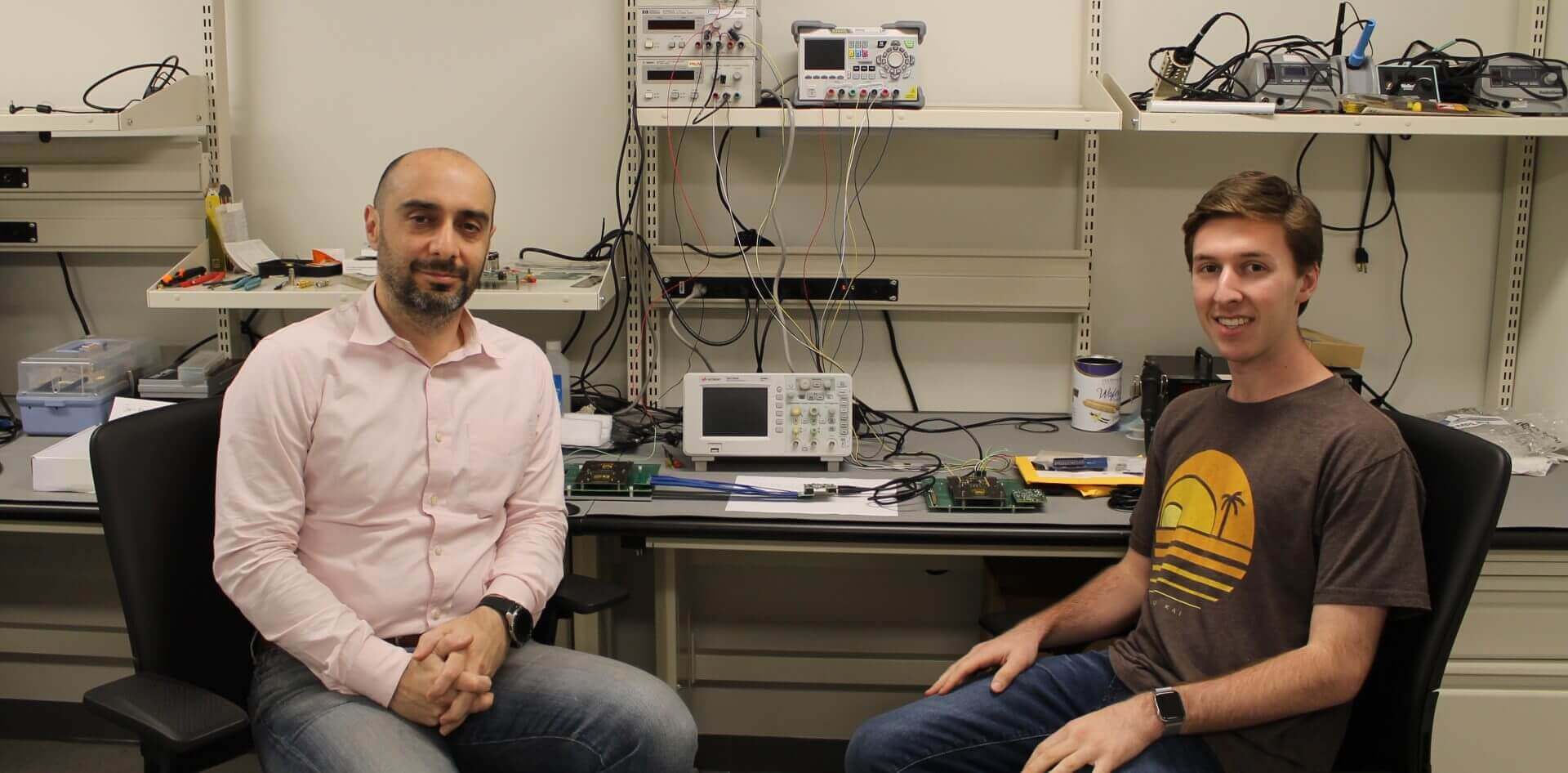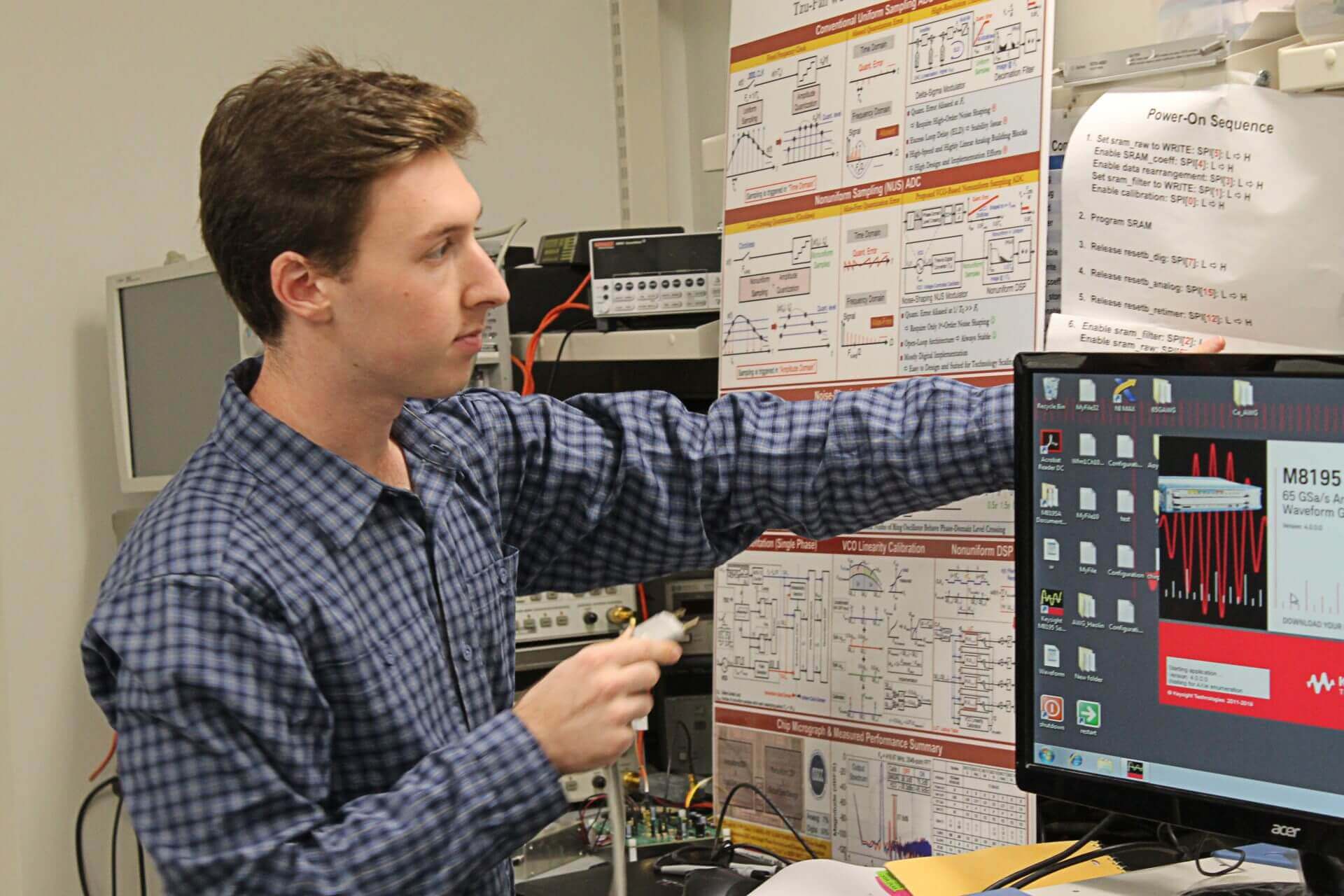
By Matthew Lee and Bonnie Wong
With self-driving cars, passengers can sit back, relax and let their automobile take care of their daily commute. Companies like Elon Musk’s Tesla have paved the way towards technologies that have made it increasingly possible to get from place to place via autopilot.
For sophomore Matthew Liberson, working in an ECE research lab has given him the hands-on experience to contribute directly to hands-free driving.
Liberson, a sophomore studying Electrical and Computer Engineering, joined Professor Hossein Hashemi’s lab during his first year of college. The Group develops “high-performance sensing and communication devices that can be embedded in the environment” with the ultimate goal of “increasing awareness and improving the quality of life.”

Liberson’s work with FMCW radars can directly affect the future of self-driving cars. FMCW radars, or frequency-modulated continuous-wave radars, are unique radar sensors which radiate continuous transmission power with operating frequencies that can change during measurement. It is similar to the idea of echolocation but measuring its distance is different.
FMCW radars have the ability to improve self-driving cars because they can measure distance in various conditions, even at night - something other systems can't handle.
“I like studying and doing research in ECE because I get to work on really interesting projects. I originally went into engineering because I love project work and working on a team, and you get a lot of that in labs and classes."
This is extremely helpful for cars to gauge their surroundings when under critical conditions.
“The idea of this specific type of radar is that it's very accurate and it can be done. We're looking at ways to do it more cost efficiently than a lot of the other radars [currently available],” Liberson said.
The team has already completed the physical mechanics of the radar and the software. They are looking to develop a signal processing system to collect the data and send it to a computer to be processed.
In particular, Liberson enjoys how he can directly apply his studies to team projects.
“I like studying and doing research in ECE because I get to work on really interesting projects,” he said. “I originally went into engineering because I love project work and working on a team, and you get a lot of that in labs and classes.”
Watch The Video
Published on February 7th, 2020
Last updated on February 20th, 2020

